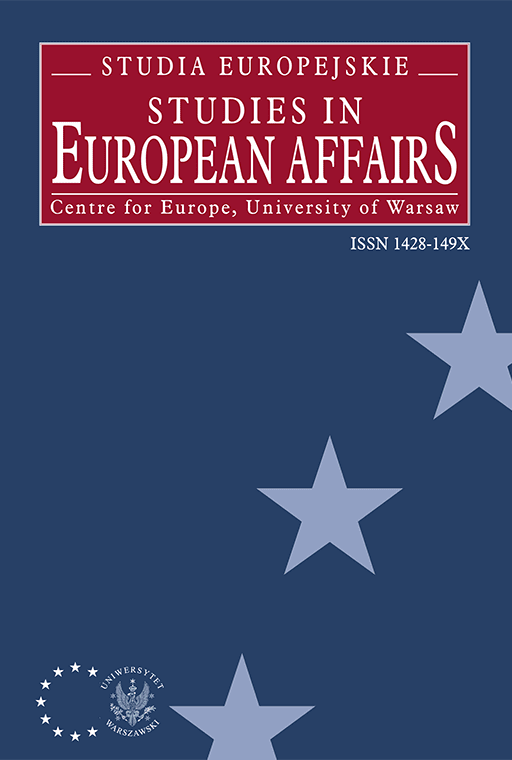
ISSUE: 2/2010
- Volume 54
- Number 2
- 2010
Subscribe NEWSLETTER
Studia Europejskie –
Studies in European Affairs
ISSN: 1428-149X
e-ISSN: 2719-3780
License
Articles published in the journal are under a Creative Commons Attribution – Non Commercial – No Derivatives 4.0 International License
Migracja i tożsamość europejska. Polscy migranci niepełniwobec procesu integracji europejskiej
Migration and European identity. Polish pendulum mi grants in the process of European integration
Abstract
The process of European integration contributes to the in ten sification of migration movement of Polish society. The article discusses different forms and levels of pendulum migrants’ identities and confronts them with variable models of European integration. Generally speaking, Polish migrants support participation in European structures. How should, then, common Europe look like according to our respondents? How should the process of European integration proceed? Should this be “Europe of home lands”, European federation or de liberative democracy model which as sumes universal public sphere to arise on a scale broader than just Europe? Emigrant experiences in fluenced our respondents’ identity in such a way that we are able to clearly de fine local, national, European and universal levels of identification. Cultural complexity of pendulum migration en tails reinforcement of various levels of identification indifferent situations. Local in effect of longing for homeliness of every day life lost after moving to a foreign social space in emigration. The level of national identification is reinforced by facing other ethnic cultures and other languages. It can be observed that the European identity of migrants is developed as an effect of adopting cultural elements from other national groups and by the emergence of a sense of be longing to one big cultural entirety. Last but not least, universal (common to all man kind) identity, especially in the case of those whose experiences result from staying in different co untries and communities, can be seen arising from mi grants’ contact with cultural diversity. It emerges as a simple reflection that in deed people are different.
Language: Polish
Pages: 89-116
How to Cite:
Harvard
Niedźwiedzki, D. (2010) "Migracja i tożsamość europejska. Polscy migranci niepełniwobec procesu integracji europejskiej". Studia Europejskie – Studies in European Affairs, 2/2010, pp. 89-116.